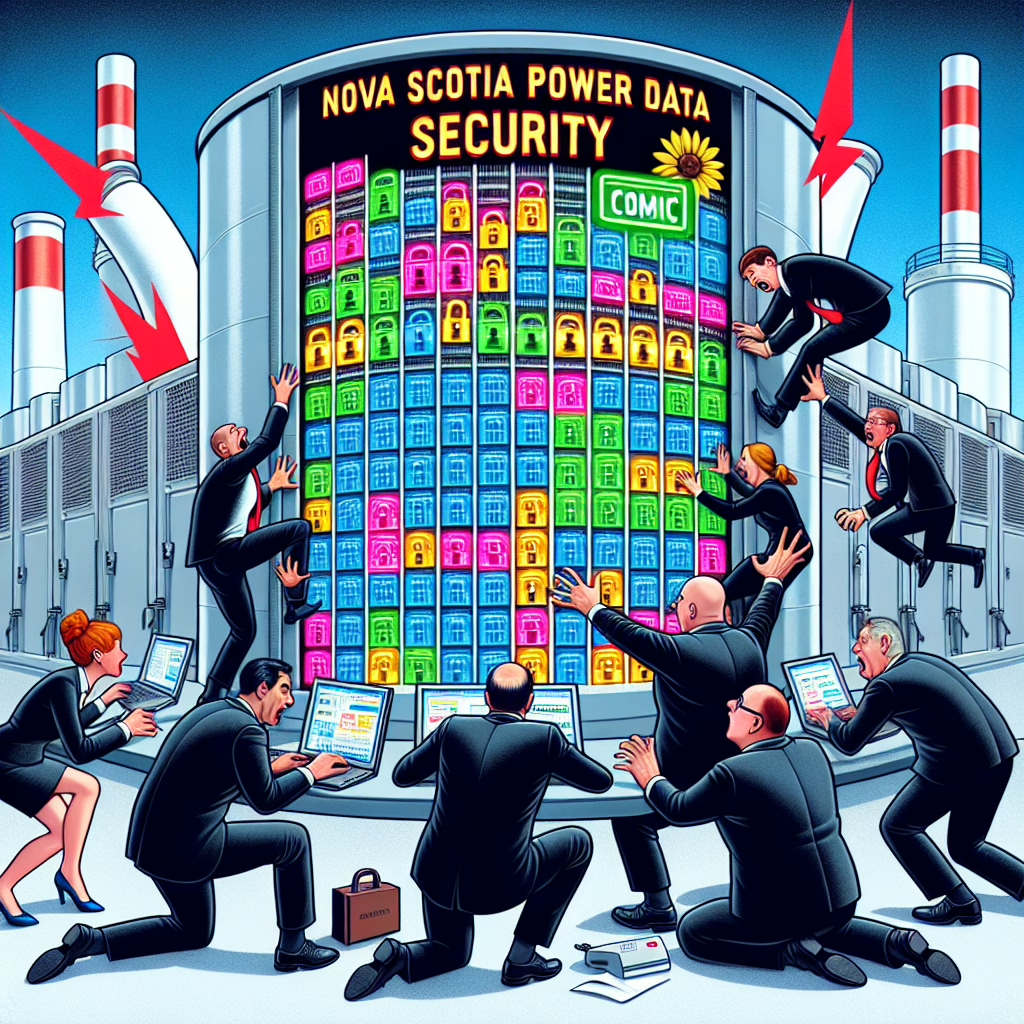In a world where hackers seem to have more energy than a double espresso, the recent Nova Scotia Power cyberattack serves as a wake-up call for all of us. Yes, it turns out that not all electricity comes from power plants; some of it seems to be generated by the nefarious activities of cybercriminals! This incident has highlighted the importance of data security in our increasingly digital lives.
The Shocking Details of the Cyberattack
The cyberattack on Nova Scotia Power didn’t just flicker the lights; it compromised sensitive customer data. Reports indicate that hackers gained unauthorized access, leading to the theft of personal information. It’s like a bad magic trick; instead of pulling a rabbit out of a hat, they pulled your social security number right out of the cloud!
This event should remind everyone that even utility companies are not immune to the clutches of cyber evildoers. But fret not! While we can’t control the actions of hackers, we can certainly take steps to enhance our own data security.
Data Security Tips: How to Keep Your Information Safe
Here are some practical tips to help you safeguard your precious data:
- Use Strong Passwords: We’ve all heard this before, but it bears repeating: avoid “123456” or “password.” Create a strong password that would take even a supercomputer years to crack. Consider using a phrase or a combination of random words.
- Enable Two-Factor Authentication: It’s like adding an extra lock on your door. Even if hackers get your password, they’ll still need that second factor to break in. Think of it as an exclusive club that requires both a password and a secret handshake.
- Stay Updated: Keep your software updated! Hackers love exploiting vulnerabilities in outdated programs. So, when you see that pesky update notification, don’t ignore it—treat it like an invitation to an exciting party!
- Be Wary of Phishing Scams: Remember, if something seems too good to be true (like winning a million-dollar lottery you didn’t enter), it probably is. Always verify before clicking any links in emails or messages.
- Limit Personal Information Sharing: Be cautious about what you share on social media. You don’t want strangers knowing your life story—or worse, your passwords!
The Bigger Picture: Why This Matters
The Nova Scotia Power breach shines a spotlight on the broader issue of data security. Companies need to bolster their defenses just as much as individuals do. After all, if we can protect our own little corners of cyberspace, then collectively we can create a safer digital environment.
This incident also reminds us that organizations must invest in robust cybersecurity measures. It’s not just about preventing breaches; it’s about building trust with customers who entrust them with sensitive information. Imagine being able to sleep soundly at night knowing your data is as secure as Fort Knox!
The Role of Government and Regulations
Governments play a critical role in enhancing data security. Regulations like GDPR in Europe set standards for data protection and privacy. If more regions adopted similar regulations, companies would have no choice but to prioritize cybersecurity. It’s like having mandatory seatbelt laws; everyone benefits when safety is prioritized.
Your Call to Action
The Nova Scotia Power cyberattack may have sent shockwaves through the community, but it also serves as a powerful reminder for all of us. By implementing strong cybersecurity practices and advocating for better protections at organizational levels, we can work together to keep our data safe from prying eyes.
Let’s stay vigilant! Remember, every little step counts when it comes to securing your information in this digital age.
If you have any thoughts or experiences related to data security, feel free to share them in the comments below! We’d love to hear from you.
A special thanks to TechRadar for their insightful article on this pressing issue: TechRadar – Hackers Steal Customer Data in Nova Scotia Power Cyberattack.

